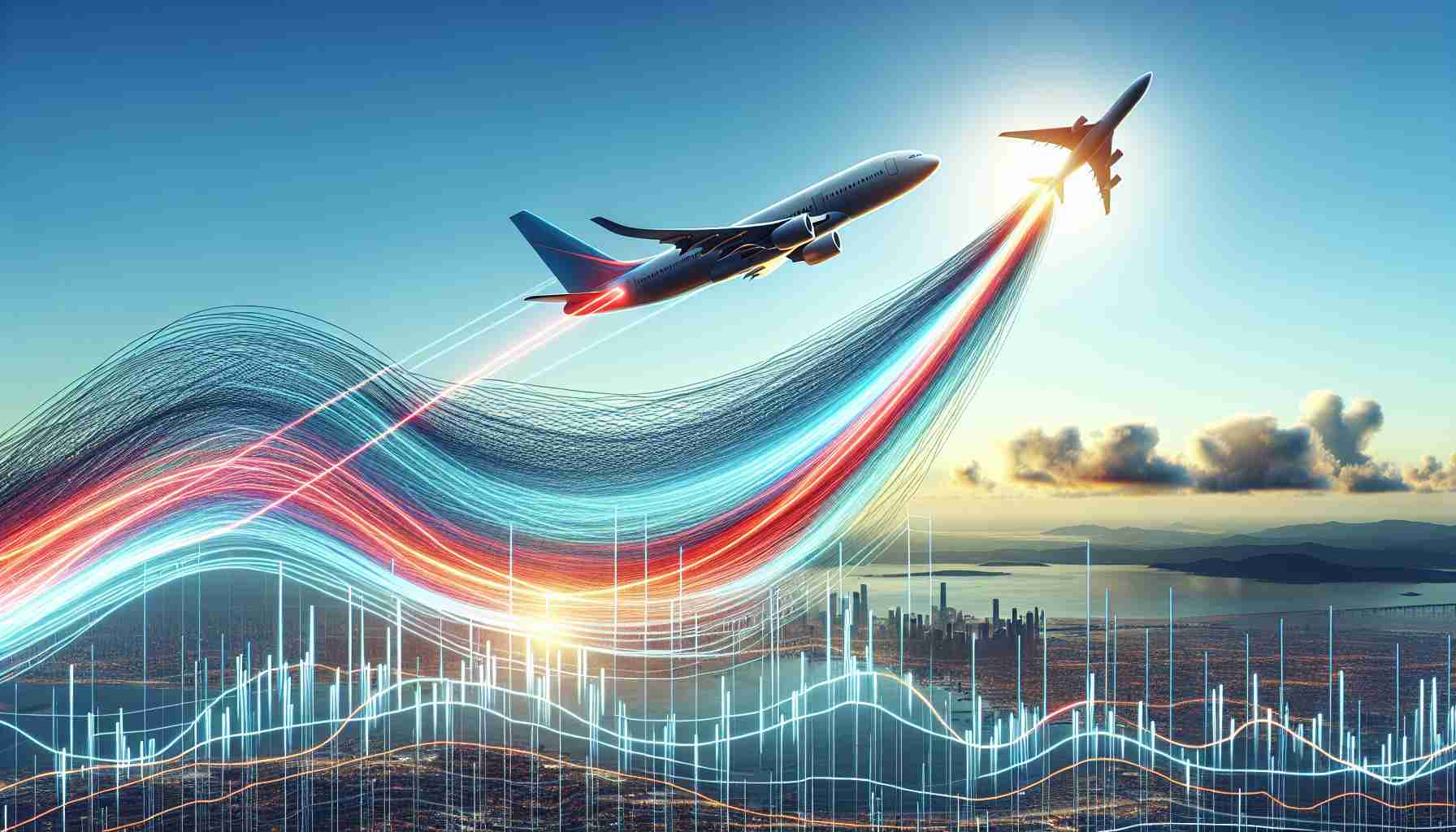The aviation group, a leading player in the industry, saw a significant surge of over 6% in its stock value, emerging as the top gainer in the Spanish stock market.
Amidst the business landscape, the group behind the renowned airline Iberia, IAG, witnessed a remarkable rise in stock prices following the striking announcement to abandon the acquisition of Air Europa due to stringent conditions imposed by regulatory authorities.
Even with the necessity to provide a €50 million compensation to Globalia, the majority owner of Air Europa, the stock value of IAG experienced a notable upsurge, exceeding 6% compared to the previous day’s closing, prior to the public disclosure of this significant decision. Currently, Iberia’s parent company leads the upward shift in the Ibex 35 index, although the Spanish stock market itself is experiencing a slight decline (-0.57%) influenced by various factors.
The market responded optimistically to IAG’s resolution to halt the acquisition discussions, considering it as a move to safeguard the interests of shareholders, as stated by the CEO, Luis Gallego.
The Uncertain Future of Air Europa
Throughout the process, IAG had proposed transferring 52% of Air Europa’s current flight frequencies in an attempt to allay concerns raised by the European Commission regarding potential competition issues and a possible spike in passenger fares. However, this final offer failed to convince Brussels to lift the veto, leading IAG to withdraw from the purchasing endeavor.
On the other hand, Air Europa swiftly reacted to the announcement, emphasizing its commitment to continue operations in Spain, citing a robust and viable business plan that ensures a sustainable long-term future independent of multinational decisions.
Strategic Impact of IAG’s Decision on Market Dynamics
The recent bold decision undertaken by the major aeronautical company, IAG, to withdraw from the acquisition of Air Europa has sent ripples through the aviation sector. While the surge in stock prices indicates initial positivity, deeper questions and implications arise regarding the future trajectory of both IAG and Air Europa.
Key Questions and Answers:
1. What led to IAG abandoning the acquisition of Air Europa?
– IAG chose to cease the acquisition due to stringent conditions imposed by regulatory bodies, particularly the European Commission, to address competition concerns.
2. How does this decision impact IAG’s strategic positioning in the industry?
– By prioritizing shareholder interests and regulatory compliance, IAG signals a commitment to responsible corporate governance and market competitiveness.
3. What challenges might Air Europa face following the failed acquisition?
– Air Europa must navigate its future independently, potentially needing to address market uncertainties, operational adjustments, and competition in the evolving airline landscape.
Advantages and Disadvantages:
Advantages:
– Market Confidence: IAG’s decisive action can enhance investor confidence in the company’s strategic decision-making process.
– Regulatory Compliance: By heeding regulatory concerns, IAG demonstrates a proactive approach to complying with industry standards.
Disadvantages:
– Missed Opportunities: The failed acquisition could represent a lost opportunity for strategic expansion and synergy realization for IAG.
– Competitive Pressures: IAG might face intensified competition in the market as it navigates new growth avenues post the abandoned acquisition.
Key Challenges and Controversies:
– Operational Adjustments: Both IAG and Air Europa may need to recalibrate their operational strategies in response to the halted acquisition.
– Long-Term Viability: Questions regarding Air Europa’s sustainability and competitive edge in a dynamic market environment may surface post the failed acquisition deal.
For further insights on the aviation industry and market dynamics, visit AirTransportWorld.com.
